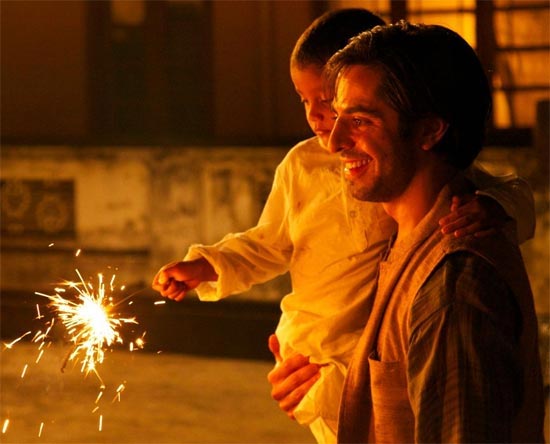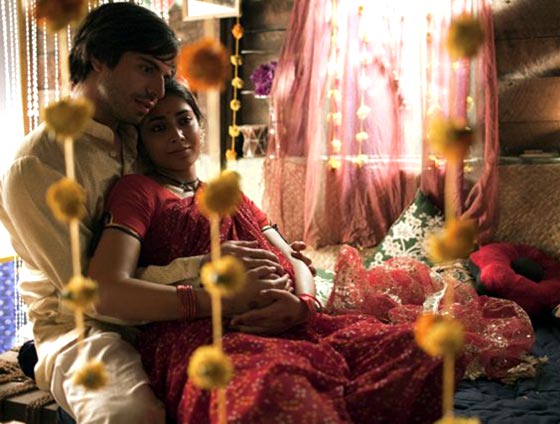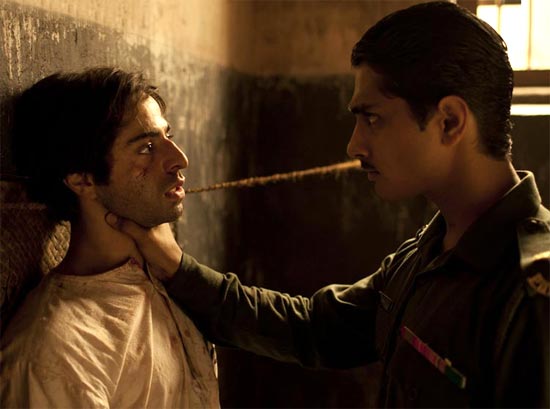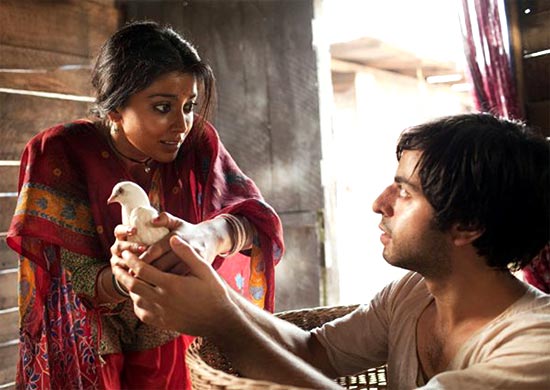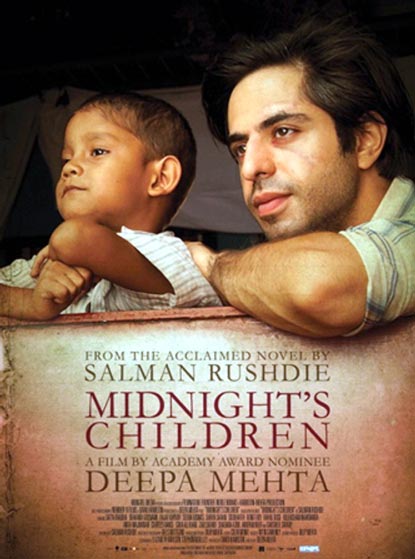 | « Back to article | Print this article |
'Felt more connected to India after Midnight's Children'
In his very first big screen appearance in a leading role, American actor of Indian origin Satya Bhabha stars in Midnight's Children.
Bhabha had not expected to be picked to play the main protagonist, Saleem Sinai, a role for which several Bollywood actors were in the running.
But Deepa Mehta saw the potential in the 29-year-old charismatic and naturally talented Bhabha, and cast him in the leading role.
In this e-mail interview with Sonil Dedhia, Bhabha talks about being the unlikely choice for the film, and how he prepared for his character.
You were probably just 10 years old when you first read the book. What were your initial thoughts of the book, especially Salman Rushdie's writing?
I remember this as my first 'un-put-downable' book. I immediately fell into the wonder and magic of Salman's characters, finding in them forgotten and, at times, unrecognised elements of my own family.
'It was a thrilling, but daunting, prospect to play Saleem Sinai'
How did you feel when you saw the movie for the first time -- the reality of what Deepa Mehta created versus what you had imagined?
I was floored. During the shoot, it was clear that this was going to be a beautiful picture -- the design was incredible and the lighting was always wonderful -- but to see the whole puzzle put together was thrilling.
It was like meeting the family of a close friend -- much is familiar, but still constantly surprising.
A lot of big actors from Bollywood were vying for the role of Saleem Sinai but Deepa Mehta announced your name at a movie screening in New York. Were you surprised?
Deepa and I had met a few times and I think we really connected on an aesthetic level -- and we have a similar sense of humour.
Despite having previously discussed the project, I was certainly surprised when she announced my name; I mean can one ever be 'prepared' to find out one is to play Saleem Sinai?
Going by the book, your character goes through heavy emotions and experiences. What was your first impression when you read the script?
It was a thrilling, but daunting, prospect playing this character.
Saleem really goes through the wringer emotionally; however, my job was to find a through-line -- the thing that keeps him going through all of these unbelievable obstacles.
That was something that Deepa and I worked on and discussed extensively and something that really improved my performance in the film.
'I really had the story and the character at my fingertips'
You really have to carry this movie on your shoulders; without your character, there is no heart to the story. This being your first major role, how did you tackle it?
It was a sincere joy and pleasure getting to work on this movie. It was certainly challenging -- both intellectually and emotionally -- but also an incredible honour to be able to communicate this beautiful story, and work with such an incredible cast.
Did you, at any point of time, feel unprepared for the role?
Thankfully, I had a long time to prepare for the part so by the time we were shooting I really had the story and the character at my fingertips.
You came to Mumbai to prepare for the role. Can you tell us more about it?
I came to Mumbai and lived with my grandmother for some months, studying Hindi and investigating Saleem's (and, to some extent, Salman's) Mumbai.
With my trusty companion, the fantastic filmmaker Kabir Chowdhry, we explored every corner of this magical city.
'I had not seen much of Deepa Mehta's previous work'
Did you take a cue from Darsheel Safary, who plays the young Salim Sinai, to keep the continuity? Did you observe his body language?
I didn't get to see much of Darsheel's work before shooting, and the way we shot, I ended up shooting a lot of the film before he even came to Sri Lanka.
However, we spent quite a bit of time together just chatting before the shoot and extensively discussed the character. When I finally saw the film, I was thrilled by how seamless our transition feels.
'It feels like coming home when I land in Mumbai now'
How much of you as a person came through in the character?
(Laughs) I think every character has, at its heart, a kernel of truth to the actor -- except maybe in very heightened things such as my role in Scott Pilgrim Vs. The World, which was largely a character comedy.
Ultimately, I think that Saleem and I are closer than we maybe knew going in to the project.
You have been born and bought up in England. Did this film allow you to explore your Indian side and understand your family roots?
Absolutely. I really felt far more connected to India during and after shooting this film than before... It really feels like coming home when I land in Mumbai now -- and that's a new experience.
A lot of people say experience makes for a better actor. Looking by the trailers and the reactions from the international critics, you seem to be defying that assumption.
Well, thank you. That's very kind. I do think that when people say that they are also often referring to life experience -- and though my on-screen work has not been extensive, I think I have a hefty wealth of life experiences to draw from.
